POSTSCRIPT
您可以在百度里搜索“King Coal: A Novel 艾草文学(www.321553.xyz)”查找最新章节!
POSTSCRIPT
From previous experiences the writer has learned that many people, reading a novel such as“King Coal,”desire to be informed as to whether it is true to fact.They write to ask if the book is meant to be so taken; they ask for evidence to convince themselves and others.Having answered thousands of such letters in the course of his life, it seems to the author the part of common-sense to answer some of them in advance.
“King Coal”is a picture of the life of the workers in unorganised labour-camps in many parts of America, The writer has avoided naming a definite place, for the reason that such conditions are to be found as far apart as West Virginia, Alabama, Michigan, Minnesota, and Colorado.Most of the details of his picture were gathered in the last-named state, which the writer visited on three occasions during and just after the great coal-strike of 1913-14.The book gives a true picture of conditions and events observed by him at this time.Practically all the characters are real persons, and every incident which has social significance is not merely a true incident, but a typical one.The life portrayed in“King Coal”is the life that is lived to-day by hundreds of thousands of men, women and children in this“land of the free.”
The reader who wishes evidence may be accommodated.There was never a strike more investigated than the Colorado coal-strike.The material about it in the writer's possession cannot be less than eight million words, the greater part of it sworn testimony taken under government supervision.There is, first, the report of the Congressional Committee, a government document of three thousand closely printed pages, about two million words; an equal amount of testimony given before the U.S.Commission on Industrial Relations, also a government document; a special report on the Colorado strike, prepared for the same commission, a book of 189 pages, supporting every contention of this story; about four hundred thousand words of testimony given before a committee appointed at the suggestion of the Governor of Colorado; a report made by the Rev.Henry A.Atkinson, who investigated the strike as representative of the Federal Council of the Churches of Christ in America, and of the Social Service Commission of the Congregational Churches; the report of an elaborate investigation by the Colorado state militia; the bulletins issued by both sides during the controversy; the testimony given at various coroners' inquests; and, finally, articles by different writers to be found in the files of Everybody's Magazine, the Metropolitan Magazine, the Survey, Harper's Weekly, and Collier's Weekly, all during the year 1914.
The writer prepared a collection of extracts from these various sources, meaning to publish them in this place; but while the manuscript was in the hands of the publishers, there appeared one document, which, in the weight of its authority, seemed to discount all others.A decision was rendered by the Supreme Court of the State of Colorado, in a case which included the most fundamental of the many issues raised in“King Coal.”It is not often that the writer of a novel of contemporary life is so fortunate as to have the truth of his work passed upon and established by the highest judicial tribunal of the community!
In the elections of November, 1914, in Huerfano County, Colorado, J.B.Farr, Republican candidate for re-election as sheriff, a person known throughout the coal-country as“the King of Huerfano County,”was returned as elected by a majority of 329 votes.His rival, the Democratic candidate, contested the election, alleging“malconduct, fraud and corruption.”The district court found in Farr's favour, and the case was appealed on error to the Supreme Court of the State.On June 21st, 1916, after Farr had served nearly the whole of his term of office, the Supreme Court handed down a decision which unseated him and the entire ticket elected with him, finding in favour of the opposition ticket in all cases and upon all grounds charged.
The decision is long—about ten thousand words, and its legal technicalities would not interest the reader.It will suffice to reprint the essential paragraphs.The reader is asked to give these paragraphs careful study, considering, not merely the specific offence denounced by the court, but its wider implications.The offence was one so unprecedented that the justices of the court, men chosen for their learning in the history of offences, were moved to say:“We find no such example of fraud within the books, and must seek the letter and spirit of the law in a free government, as a scale in which to weigh such conduct.”And let it be noted, this“crime without a name”was not a crime of passion, but of policy; it was a crime deliberately planned and carried out by profit-seeking corporations of enormous power.Let the reader imagine the psychology of the men of great wealth who ordered this crime, as a means of keeping and increasing their wealth; let him realise what must be the attitude of such men to their helpless workers; and then let him ask himself whether there is any act portrayed in“King Coal”which men of such character would shrink from ordering.
The Court decision first gives an outline of the case, using for the most part the statements of the counsel for the defendant, Farr; so that for practical purposes the following may be taken as the coal companies' own account of their domain:“Round the shaft of each mine are clustered the tipple, the mine office, the shops, sheds and outbuildings; and huddled close by, within a stone's throw, cottages of the miners built on the land of, and owned by, the mining company.All the dwellers in the camp are employés of the mine.There is no other industry.This is 'the camp.' Of the eight 'closed camps' it appears that practically the same conditions existed in all of them, and those conditions were in general that members of the United Mine Workers of America, their organisers or agitators, were prevented from coming into the camps, so far as it was possible to keep them out, and to this end guards were stationed about them.Of the eight 'closed camps' one of them, 'Walsen,' was, and at the time of the trial still was, enclosed by a fence erected at the beginning of the strike in October, 1913: Rouse and Cameron were partly, but never entirely, enclosed by fences.It is admitted that all persons entering these camps and precincts were required by the companies to have passes, and it is contended that this was an 'industrial necessity.'”
The Court then goes on as follows:
“The Federal troops entered the district in May of 1914, and the testimony is in agreement that no serious acts of violence occurred thereafter, and that order was preserved up to and subsequent to the election, and to the time of this trial.
“It was under this condition that in July, 1914, the Board of County Commissioners changed certain of the election precincts so as to constitute each of such camps an election precinct, and with but one exception where a few ranches were included, these precincts were made to conform to the fences and lines around each camp, protected by fences in some instances and with armed guards in all cases.Thus each election precinct by this unparalleled act of the commissioners was placed exclusively within and upon the private grounds and under the private control of a coal corporation, which autocratically declared who should and who should not enter upon the territory of this political entity of the state, so purposely bounded by the county commissioners.
“With but one exception all the lands and buildings within each of these election precincts as so created, were owned or controlled by the coal corporations; every person resident within such precincts was an employé of these private corporations or their allied companies, with the single exception: every judge, clerk or officer of election with the exception of a saloon keeper, and partner of Farr, was an employé of the coal-companies.
“The polling places were upon the grounds, and in the buildings of these companies; the registration lists were kept within the private offices or buildings of such companies, and used and treated as their private property.
“Thus were the public election districts and the public election machinery turned over to the absolute domination and imperial control of private coal corporations, and used by them as absolutely and privately as were their mines, to and for their own private purposes, and upon which public territory no man might enter for either public or private purpose, save and except by the express permission of these private corporations.
“This right to determine who should enter such so called election precincts, appears from the record to have been exercised as against all classes; merchants, tradesmen or what not, and whether the business of such person was public or private.Indeed, it appears that in one instance the governor and adjutant general of the state while on official business, were denied admission to one of these closed camps.And that on the day of election, the Democratic watchers and challengers for Walsen Mine precinct, one of which was Neelley, the Democratic candidate for sheriff, were forced to seek and secure a detail of Federal soldiers to escort them into the precinct and to the polls, and that such soldiers remained as such guard during the day and a part of the night....
“But if there was any doubt concerning the condition of the closed camps and precincts, and the exclusion of representatives of the Democratic party from discussing the issues of the campaign within the precincts comprising the closed camps, it is entirely removed by the testimony of the witness Weitzel, for contestee (Farr).He testified that he was a resident of Pueblo, and was manager of the Colorado Fuel and Iron Company; that Rouse, Lester, Ideal, Cameron, Walsen, Pictou and McNally are camps under his jurisdiction.That he had general charge of the camps and that there was no company official in Colorado superior to him in this respect except the president; that the superintendent and other employés are under his supervision; that the Federal troops came about the 1st of May, 1914, and continued until January, 1915.That in all those camps he tried to keep out the people who were antagonistic to the company's interests; that it was private property and so treated by his company; that through him the company and its officials assumed to exercise authority as to who might or who might not enter; that if persons could assure or satisfy the man at the gate, or the superintendent that they were not connected with the United Mine Workers, or in their employ as agitators, they were let into the camp.That 'no one we were fighting against got in for social intercourse or any other'; that he and officials under him assumed to pass upon the question of whether or not any person coming there came for the purpose of agitation.That Mr.Mitchell, the chairman of the Democratic committee, as he recalled it, was identified with the agitators, ran a newspaper and was connected either directly or indirectly with the United Mine Workers; that Mr.Neelley, Democratic candidate for sheriff, was identified with the strikers, and that he would be considered as an objectionable character.That when the Federal troops came, they restored peace and normal conditions; there was no rioting after that, there was no fear on the part of the company when the Federal soldiers were here, except fear of agitation.Asked if he guarded the camp against discussion, against the espousal of the cause of the company, he replied, 'We didn't encourage it.' The company would not encourage organisers to come into the camp, no matter how peacefully they conducted themselves; that the company did not permit men to come into the camp to discuss with the employés certain principles, or to carry on arguments with them or to appeal to their reason, or to discuss with them things along reasonable lines, because it was known from experience that if they were allowed to come in they would resort to threats of violence.They might not resort to any violence at the time, but it might result in the people becoming frightened and leaving, and they were anxious to hold their employés.He was asked whether or not one had business there depended upon the decision of the official in charge; he replied that the superintendent probably would inquire of him what his business was.That any one that Farr asked for a permit to enter the camp would likely get it....
“There was but one attempt to hold a political meeting in the closed precincts.Joseph Patterson, who attempted to hold this meeting, testifies concerning it as follows:
“Was at a political meeting at Oakview.Had been a warm, personal friend of Mr.Jones, the assistant superintendent of the Oakview mine, and had written him a letter asking the courtesy of holding a political meeting.On Saturday evening received a letter that he could hold such meeting.On the day previous to the meeting witness received a 'phone message from the assistant superintendent, in which the latter inquired whether witness was coming up there to cause any trouble, and witness replied, certainly not, and if the superintendent felt that way they would not come.Had advised the superintendent that he and others were going to hold a political meeting for the Democratic party.Jones, the superintendent, stated that witness should come to the office that night before he went to the school house for the purpose of the meeting; when witness arrived at the meeting there were about six or eight English speaking people and a dozen to fourteen Mexicans.The superintendent, Mr.Morgan, and Mr.Price, were outside of the door most of the time.Witness noticed that the first few fellows that came toward the school house, the superintendent stopped and talked with them and they turned back to the camp.This happened several times: as soon as they talked with Morgan they turned back.After he saw that, witness went into the school house and said that it was no use to hold any meeting; that it seemed that nobody was allowed to come.This meeting was supposed to be in a public school house on the company property.Had to get permission from the superintendent of the Oakview mining Company to hold said political meeting.”....
“It appears that the number of registered voters in the closed precincts was very largely in excess of the number of votes cast, and this of itself was sufficient to demand an open and fair investigation as to the qualifications of the alleged voters.
“It appears from the testimony that in these closed precincts many of those who voted were unable to speak or read the English language, and that in numerous instances, the election judges assisted such, by marking the ballots for them in violation of the law.Again, it appears that the ballots were printed so that....(The decision here goes on to explain in detail a device whereby the ballot was so printed that voting could be controlled with the help of a card device.) Thus such voters were not choosing candidates, but, under the direction of the companies, were simply placing the cross where they found the particular letter R on the ballot, so that the ballot was not an expression of opinion or judgment, not an intelligent exercise of suffrage, but plainly a dictated coal company vote, as much so as if the agents of these companies had marked the ballots without the intervention of the voter.No more fraudulent and infamous prostitution of the ballot is conceivable....
“Counsel contend that the closed precincts were an 'industrial necessity,' and for such reason the conduct of the coal companies during the campaign was justified.However such conduct may be viewed when confined to the private property of such corporations in their private operation, the fact remains that there is no justification when they were dealing with such territory after it had been dedicated to a public use, and particularly involving the right of the people to exercise their duties and powers as electors in a popular government.
“The fact appears that the members of the board of county commissioners and all other county officers were Republicans, and as stated by counsel for the contestees, the success of the Republican candidates was considered by the coal companies, vital to their interests.The close relationship of the coal companies and the Republican officials and candidates appears to have been so marked both before and during the campaign, as to justify the conclusion that such officers regarded their duty to the coal companies as paramount to their duty to the public service.To say that the closed precincts were not so created to suit the convenience and interests of these corporations, or that they were not so formed with the advice and consent of these corporations, is to discredit human intelligence, and to deny human experience.The plain purpose of the formation of the new precincts was that the coal companies might have opportunity to conduct and control the elections therein, just as such elections were conducted.The irresistible conclusion is that these close precincts were so formed by the county commissioners with the connivance of the representatives of the coal companies, if not by their express command.
“There can be no free, open and fair election as contemplated by the constitution, where private industrial corporations so throttle public opinion, deny the free exercise of choice by sovereign electors, dictate and control all election officers, prohibit public discussion of public questions, and imperially command what citizens may and what citizens may not, peacefully and for lawful purposes, enter upon election or public territory....
“We find no such example of fraud within the books, and must seek the letter and spirit of the law in a free government, as a scale in which to weigh such conduct....
“The denial of the right of peaceful assemblage, can have been for no other purpose than to influence the election.There was no disturbance in any of these precincts after they were created, up to the time of the election, and up to the time of this trial.The Federal troops were present at all times to preserve the peace and to protect life and property.There was no reason to anticipate any disturbance.Therefore this bold denial was an inexcusable and corrupt violation of the natural and inalienable rights of the citizens.
“The defence relies not upon conflicting evidence, but upon the contention that the conduct of the election was justified as an 'industrial necessity.'
“We have heard much in this state in recent years as to the denial of inherent and constitutional rights of citizens being justified by 'military necessity,' but this we believe is the first time in our experience when the violation of the fundamental rights of freemen has been attempted to be justified by the plea of 'industrial necessity.'
“Even if we were to concede that there may be some palliation in the plea of military necessity on the theory that such acts purport to be acts of the government itself, through its military arm and with the purpose of preserving the public peace and safety: yet that a private corporation, with its privately armed forces, may violate the most sacred right of the citizenship of the state and find lawful excuse in the plea of private 'industrial necessity' savours too much of anarchy to find approval by courts of justice.
“This case clearly comes within another exception to the rule, in that it is plain that the findings were influenced by the bias and prejudice of the trial judge.
“A careful reading of the record discloses the rejection by the court of so much palpably pertinent and competent testimony offered by the contestors, as to force the conclusion that the trial judge was influenced by bias and prejudice, to the extent at least, charged in the application for a change of venue, and sufficient in itself to justify a reversal of judgment....
“For the foregoing reasons the judgment of the court in each case before us, is reversed, and the entire poll in the said precincts of Niggerhead, Ravenwood, Walsen Mine, Oakview, Pryor, Rouse and Cameron is annulled, and held for naught, and the election in each of said precincts is hereby set aside.This leaves a substantial and unquestioned majority for each of the contestors in the county, and which entitles each contestor to be declared elected to the office for which he was a candidate.
“We find further, that J.B.Farr, the defendant in error, was not and is not the duly elected sheriff of Huerfano county, and that E.L.Neelley, the plaintiff in error, was and is the duly elected sheriff of said county.It is therefore ordered that the said county, and that the said E.L.Neelley, immediately and upon qualification as required by law, enter and discharge the duties of the said office of sheriff of Huerfano county....”
So much for the court opinion upon coal-camp politics.In relation thereto, the writer has only one comment to offer.Let the reader not drop the matter with the idea that because one set of corrupt officials have been turned out of office in one American county, therefore justice has been vindicated, and there is no longer need to be concerned about the conditions portrayed in“King Coal.”The defeat of the“King of Huerfano County”is but one step in a long road which the miners of Colorado have to travel if ever they are to be free men.The industrial power of the great corporations remains untouched by this decision; and this power is greater than any political power ever wielded by the government of Huerfano County, or even of the state of Colorado.This industrial power is a deep, far-spreading root; and so long as it is allowed to thrive, it will send up again and again the poisonous plant of political“malconduct, fraud and corruption.”The citizens and workers of such industrial communities, whether in Colorado, in West Virginia, Alabama, Michigan or Minnesota, in the Chicago stock-yards, the steel-mills of Pittsburg, the woollen-mills of Lawrence or the silk-mills of Paterson, will find that they have neither peace nor freedom, until they have abolished the system of production for profit, and established in the field of industry what they are supposed to have already in the field of politics—a government of the people, by the people, for the people.
NOTE: On the day that the author finished the reading of the proofs of“King Coal,”the following item appeared in his daily newspaper:
COLORADO MINE WORKERS ASK LEAVE TO STRIKE
[BY A.P.NIGHT WIRE]
DENVER (Colo.), June 14.—Officers of the United Mine Workers representing members of that organisation employed by the Colorado Fuel and Iron Company, have telegraphed their national officers asking permission to strike.
At the morning session a resolution was adopted expressing disapprobation of the action of J.F.Welborn, president of the fuel company, for failure to attend the meeting, which was a part of the“peace programme”to prevent industrial differences in the State during the war.
The grievances of the men, according to John McLennan, spokesman for them, centre about the operation of the so-called“Rockefeller plan”at the mines.McLennan said the failure of Mr.Welborn to attend the meeting and discuss these grievances with the men precipitated the strike agitation.
THE END King Coal: A Novel




